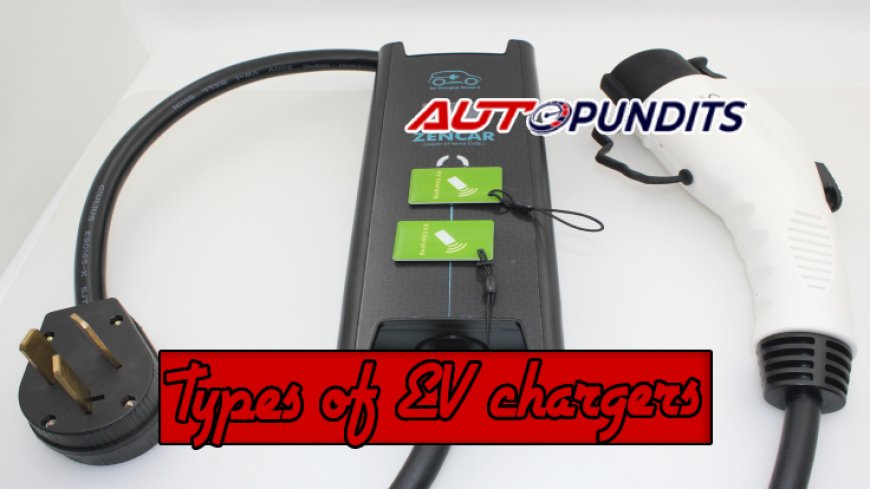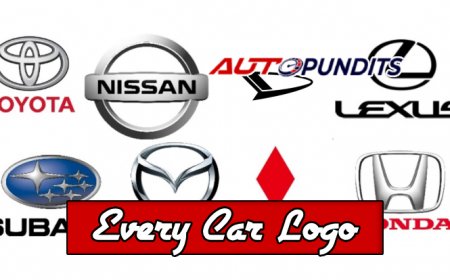Understanding the Different Types of EV Chargers
Dive into the varied types of EV chargers and make an informed choice when choosing the right charger for your electric vehicle.

Understanding the different types of EV chargers is fundamental for all luxury car owners. A well-chosen charger can make a significant difference in charging time and overall performance of your vehicle. This article will delve into the world of EV chargers, shedding light on the different types available and helping you make a more informed choice for your luxury electric vehicle.
Exploring the World of EV Chargers
The world of EV chargers is vast and diverse. From AC chargers that are ideal for home use to faster DC chargers often found at public charging stations, each charger type brings its own set of advantages and considerations.
Table of Contents
- AC Chargers
- DC Chargers
- Tesla Superchargers
- Wireless Chargers
- Understanding Charging Speeds
- Choosing the Right Charger
- Costs and Installation
- Future of EV Chargers
AC Chargers

The first type of charger we're examining is the AC Charger. AC stands for Alternating Current. These chargers convert the AC energy from the grid into DC energy for your car's battery. They're the most common type seen, especially in homes and workplaces.
There are two primary types of AC chargers: Level 1 and Level 2. The difference between these lies mainly in their charging speed and connection type.
Level 1 AC Chargers
These are the simplest chargers available, often coming standard with most electric vehicles. They use a standard 120-volt household outlet, making them convenient and easy to use. However, they're not the fastest option around. Typically, a Level 1 charger will provide about 5 miles of range per hour of charging. For those who drive less and have more time to charge, these chargers are a reasonable choice.
Level 2 AC Chargers
In contrast, Level 2 chargers require a 240-volt outlet, similar to those used for large home appliances. They can charge an EV significantly faster than Level 1 chargers—typically providing 10 to 60 miles of range per hour of charging. Professionals that need efficient charging times often prefer these chargers for their speed.
DC Chargers

Next on the list are DC Chargers. DC stands for Direct Current. These chargers differ from AC chargers because they deliver DC power directly to the vehicle's battery, bypassing the need for an onboard converter. As such, they can charge an electric vehicle significantly faster.
DC chargers are usually classified into three levels depending on their power capabilities: Level 1, Level 2, and Level 3. However, most home users seldom have Level 3 chargers due to their high power demand and associated cost.
- Level 1 DC Chargers: These chargers are relatively uncommon. They provide a similar charging speed to Level 2 AC chargers, but their access and usage are more limited.
- Level 2 DC Chargers: With a charging power of around 60 kW, they can give up to 200 miles of range per hour. These are often found at public charging stations.
- Level 3 DC Chargers: Also known as Ultra-fast chargers, they can deliver up to 350 kW of power. Despite their high speeds, they are less common due to their size and cost.
Tesla Superchargers
For Tesla owners, an exclusive charging network known as the "Supercharger" network is available. These are proprietary DC charging stations by Tesla and are designed for long-distance travel. They can charge a Tesla vehicle up to 80% in around 30 minutes, making them significantly faster than many other charger types. However, please note that these chargers are not compatible with non-Tesla EVs.
Wireless Chargers
At the cutting edge of EV charging technology lie wireless chargers. These devices utilize resonance charging technology, allowing an electric vehicle to be charged without any physical connector. It might seem like something from a sci-fi novel, but this technology is already here and maturing rapidly.
On the flip side, wireless chargers are currently slower and more expensive than their wired counterparts. However, as the technology develops, we can expect to see efficiency improvements and cost reductions.
Understanding Charging Speeds
With numerous chargers available, charging speeds can vary considerably. They are typically measured in kilowatts (kW). The higher the kW, the faster the charging process. However, keep in mind that individual EV models also play a crucial role, as not every EV can handle the highest power levels.
A rule of thumb is: the faster the charger, the faster your EV will recharge. For example, a 50kW charger will usually charge an EV with a 90kWh battery from 20% to 80% in around 60 to 90 minutes. Meanwhile, a 7kW charger may take 10-12 hours to accomplish the same task.
Choosing the Right Charger
When it comes to choosing the correct EV charger, it largely boils down to your personal lifestyle and needs. If you primarily charge your EV overnight at home and don’t travel long distances, a Level 1 or Level 2 AC charger might suffice. However, if you are a heavy commuter or frequently take long trips, having access to a DC fast chargers, such as Tesla Superchargers, could be more beneficial.
Here are some considerations when choosing a charger:
- Budget: Prices vary significantly. Level 1 chargers are the cheapest, while Level 3 DC and wireless chargers are at the top end of the price spectrum.
- Installation requirements: Some chargers, especially Level 2 and 3, require professional installation or may need a special power supply.
- Charging speed: Consider how fast you need your vehicle charged. If a slow, overnight charge is satisfactory, a more expensive fast charger may not be necessary.
- Vehicle compatibility: Not every charger fits every car. Always check the compatibility with your EV model.
Costs and Installation
The costs of EV chargers vary greatly, from a few hundred dollars for a basic Level 1 charger to several thousands for a high-powered Level 3 charger. Furthermore, some chargers, particularly Level 2 and Level 3 DC chargers, require professional installation. This can involve upgrades to your home’s electrical system — leading to higher costs.
The Role of Electricians
You'll likely need a qualified electrician for the installation of Level 2 and above chargers. Electricians can help determine what your home needs for the charger to operate safely and effectively. The process frequently involves installing a dedicated circuit to handle the charger's power demands. Therefore, consider these additional costs while planning for an EV charger installation.
Future of EV Chargers

As the number of electric vehicles grows, so too does the need for efficient charging solutions. Industry experts predict that chargers will continue to become faster, more efficient, and more adaptable. Simultaneously, the charging infrastructure is expanding. A promising innovation is "V2G" or "Vehicle to Grid" technology, which enables cars not only to draw power from the grid but also to contribute excess power back to it.
Wireless chargers are also expected to become mainstream as their technology matures. Battery technology is improving too, reducing charge times and offering longer ranges. These developments are paving the way for an electrified, greener future.
At AutoPundits, we are excited to witness the continuous evolution of EV charging technologies. Whether you're a luxury EV owner or a high-end automobile enthusiast, staying ahead of these trends will help you make the most of your investment in electric mobility. Welcome to the future of luxury electric driving!
What's Your Reaction?

































































